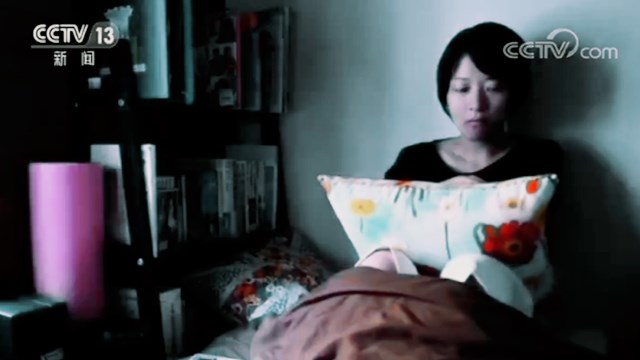CCTV News:In Japan, there is a special group, which is called "cocoon family". "Cocoon family" refers to those who have zero communication with the outside world. They stay indoors for as little as six months and as many as decades, and are almost isolated from the world. A murder case occurred in Japan on the 1st of this month, which brought the "cocoon family" into the public attention again.
In this murder case, a former senior official of the Japanese government killed his own son at home. After killing the man, the senior official claimed that he was "killing the people."

The suspect, Xiong Zeying Zhao, is 76 years old and lives in Tokyo. He once served as the Deputy Minister of the Ministry of Agriculture, Forestry and Fisheries of Japan. On the 1st, Xiong Zeying Zhao called the police and confessed that he had killed his 44-year-old son Xiong Zeying Ichiro at home. The police found at the scene that Hideyoshiro had more than a dozen stab wounds in his chest and abdomen.
According to several Japanese media reports, Xiong Zeying Zhao told the police that he personally killed his son because a few hours before the incident, a primary school near his home held a sports meeting, and his son complained that it was too noisy and had an argument with him. Xiong Zeying Zhao said that his son’s fierce words and violent actions worried him that his son would have the idea of "indiscriminate killing", so he picked up a knife to "kill the people".
Xiong Zeying Zhao said that the 44-year-old Xiong Zeying Ichiro is an out-and-out "cocoon family". He has been living alone outside for the past 10 years and offered to move back home in May this year. Not only does he have no job, he is almost "isolated", and he is prone to violence. This makes Xiong Ze feel very dangerous.

At present, the police have designated this incident as a murder case and are investigating it.
[Self-report of 32-year-old "Cocoon Family" Yong Qi] I just feel very heavy and afraid of the world.
"Cocoons" are unwilling to communicate with the outside world. How can they make a living? Some "cocoon-dwelling people" will engage in some occupations online, while others rely on their parents to support them and become neets. The 32-year-old Yong Qi is a typical "cocoon family". How does he live?
Like a bird that can’t fly freely in a cage, the life of the cocoon family is limited to its own home and room. In the past ten years, 32-year-old Yong Qi, as a member of the cocoon family, lived under the same roof with his mother. Like many "cocoon-dwelling people", his diet and daily life are all taken care of by his parents, and "cocoon-dwelling people" are also "neets". Yong Qi never goes out and doesn’t contact with the society. He is only accompanied by a TV and a room full of comic books.

Yong Qi’s childhood was the same as that of most people, but during his college years, he was bullied on campus, which made him unwilling to contact with people and society again and became a member of the cocoon family.
Yong Qi: "I seem to have forgotten everything. I just feel very heavy and afraid of the world. Even a phone call or an email puts me under a lot of pressure."
Yong Qi’s mother said that her son’s behavior made her very anxious.
[News Watch] The problem of "cocoon clan" puzzles Japanese society.
In Japan, there are quite a few people like Yong Qi. In the 1990s, when Japan’s economy went down, the pressure of employment and life increased, and many young people were devastated, "cocoon families" began to appear in large numbers. This phenomenon has continued to this day and has become a difficult problem that plagues Japanese society.
"Cocoon family" has the following characteristics, which are indispensable: first, they don’t go out for 24 hours and buy daily necessities online, even if they go out occasionally, they go to the nearest store to buy daily necessities; Second, zero communication with others. Even if you contact your family, it is because of survival needs, such as eating; Third, the above two points last for more than half a year.
According to the survey data released by the Japanese Cabinet in March this year, there are about 540,000 "cocoon dwellers" under the age of 39 in Japan, while as many as 610,000 people between the ages of 40 and 64 are "cocoon dwellers". In addition, most of the "cocoon family" are men, but in recent years, more and more women have joined the ranks of "cocoon family".
Tanaka (female, 27-28 years old): "When I was young, I found that I didn’t want to get in touch with people, but I tried to get over it. I also tried to go to college, find a job and find a boyfriend, but I seemed tired of life and didn’t want to do anything." After that, Tanaka quit her job and broke up with her boyfriend, which made her feel more relaxed than ever. Today, Tanaka’s "clan age" has reached five years.

Experts from Waseda University in Japan believe that the "cocoon family" reflects the current situation of Japanese society.
Guan Shui, an expert from Waseda University, Japan: "The Japanese emphasize rules, and the value of individuals is reflected in their ability to abide by group rules. ‘ Cocoon clan ’ It is those who can’t realize such value. They will feel useless, ashamed and unable to integrate into this society, and they will feel guilty. "
In addition, bullying on campus, finding a job and being unable to adapt to the workplace are also the reasons why people become "cocoon dwellers". In Japan, there are some social groups and organizations that bring together "cocoon-dwelling people" and give them training to gradually adapt them to society. After years of training, some "cocoon-dwelling people" have gradually gone out of their homes and integrated into society, and are no longer afraid to communicate with others.
Returning to the case of Hideyoshi Kumasawa’s murder, Japanese public opinion generally believes that the Japanese government and society should pay more attention to the psychological status of the "cocoon family" and take more measures to help them "return to society" and prevent them from going to extremes in loneliness.